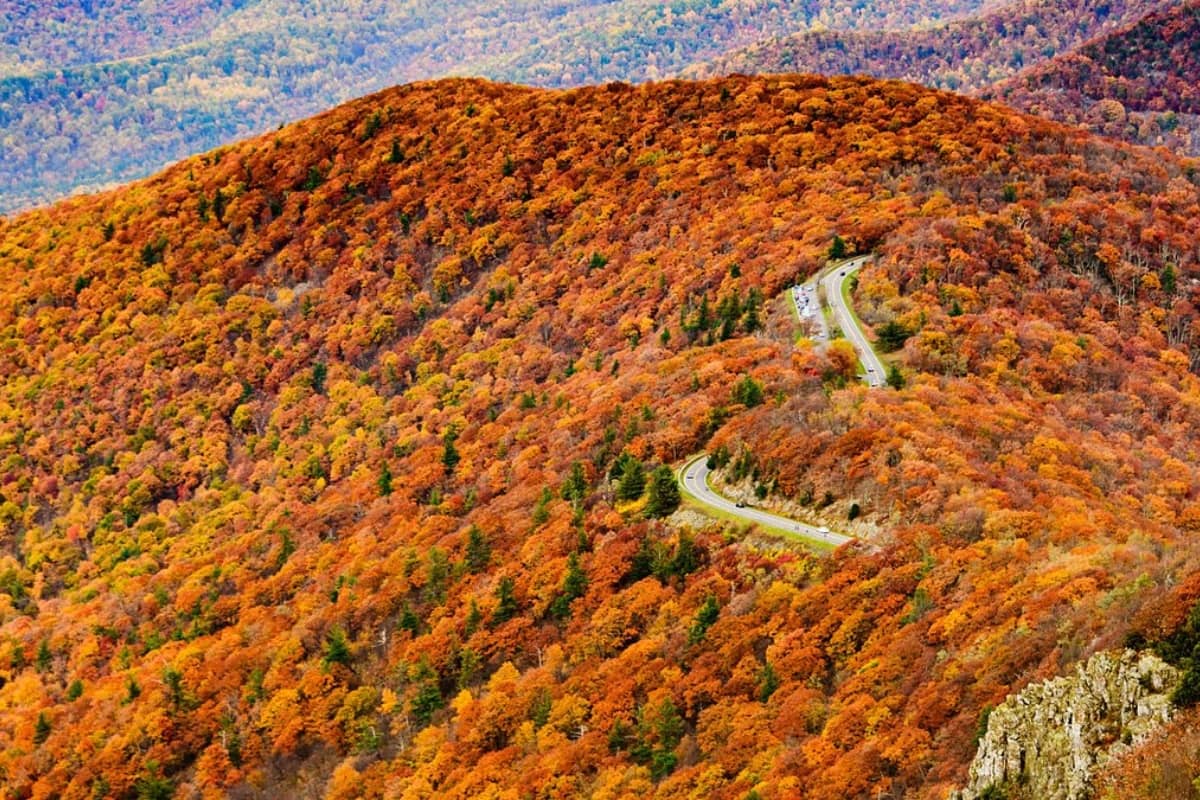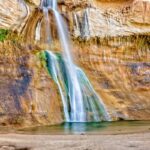The Appalachian Mountains, especially during the vibrant fall season, attract millions of tourists for their breathtaking scenery, hiking trails, and natural beauty. Unfortunately, this popularity also attracts scammers looking to take advantage of unsuspecting visitors. Scammers in these regions have become increasingly creative, targeting tourists with elaborate schemes. By being aware of these four prevalent scams in the Appalachian Mountains, tourists can enjoy their travels without falling victim to fraudulent schemes.
1. Fake Parking Attendants
One of the most common scams targeting tourists in the Appalachian region involves fake parking attendants. These scammers set up shop at popular trailheads, scenic viewpoints, or park entrances, often during peak fall foliage season when tourists are least familiar with the area. They may wear official-looking attire, such as reflective vests, and even place fake parking signs to make their operation appear legitimate. Some will demand cash-only payments for parking or issue fake parking tickets, threatening fines for non-payment.
To avoid this scam, always look for official signage that indicates whether parking fees are required. National and state parks usually have clear instructions and designated payment machines or kiosks. If unsure, ask other park visitors or contact the park’s information office. It’s important to remember that legitimate parks or parking areas will never rely on cash-only attendants.
2. Bogus Cabin Rentals
The Appalachian Mountains are known for their cozy and secluded cabins, especially during the fall when the air is crisp, and the forests are ablaze with autumn colors. However, scammers are taking advantage of this demand by posting fake cabin listings on platforms like Craigslist, classified ads, and even social media. These listings feature pictures of real cabins, often stolen from legitimate rental sites, at prices that seem too good to be true. Tourists are lured in by these attractive deals and are asked to pay via untraceable methods such as wire transfers or third-party apps.
Upon arrival, the tourists find that the cabin doesn’t exist, or it’s already occupied by legitimate renters. The money is gone, and the vacation plans are ruined. To protect yourself from this scam, it’s vital to book accommodations through well-known platforms like Airbnb, VRBO, or direct booking with trusted rental agencies. Always check reviews from previous guests, and avoid paying through untraceable methods like wire transfers or gift cards.
3. Fake Wildlife and Scenic Tours
The natural beauty of the Appalachian region makes it a popular destination for scenic tours and wildlife photography trips. Unfortunately, scammers have tapped into this demand by offering fraudulent or subpar tours. These fake tours are often promoted through unofficial websites, social media, or local bulletin boards. They advertise exclusive access to scenic overlooks, wildlife viewing spots, or even guided hikes to off-the-beaten-path locations.
Tourists are required to pay upfront, only to find out later that the tour either doesn’t exist or is drastically different from what was advertised. In some cases, the tour operators disappear entirely, leaving visitors with nothing to show for their money. To avoid being scammed, only book tours through reputable companies that have verified reviews on trusted platforms like TripAdvisor or Viator. It’s also important to confirm that the tour operator is licensed and has a legitimate presence in the area.
4. Credit Card Skimming at Gas Stations
Gas stations in remote or rural areas along the Appalachian Mountain routes are prime targets for scammers using credit card skimming devices. These devices are installed on gas pumps and capture credit card information when tourists pay for fuel. Once the scammers have the card details, they can use the information to make fraudulent purchases, often leaving tourists unaware until days or weeks after their trip.
Tourists can protect themselves by paying for gas inside the station rather than at the pump, especially in remote areas where skimmers are more likely to be placed. If paying at the pump is the only option, choose pumps closer to the station’s entrance, as they are less likely to be tampered with. Look for signs of skimming devices, such as loose card readers or unusual attachments on the pump. It’s also a good idea to regularly monitor your bank statements for any suspicious activity during and after your trip.
Additional Tips for Avoiding Scams in the Appalachian Mountains
- Verify Legitimacy: Always verify the legitimacy of services, whether it’s parking, accommodation, or guided tours. Use trusted platforms and check for reviews from previous users. It’s also important to avoid deals that seem too good to be true, as these are often red flags for scams.
- Stick to Secure Payment Methods: Whenever possible, use secure and traceable payment methods like credit cards or booking through well-known platforms. Avoid paying through wire transfers, gift cards, or other untraceable methods.
- Research Thoroughly: Before traveling, research the area and familiarize yourself with official websites for parks, tour companies, and accommodations. Reading travel forums and reviews can provide valuable insight into any potential scams or issues in the region.
- Stay Vigilant: Scammers often target tourists who appear distracted or unfamiliar with their surroundings. Always stay alert, keep your belongings secure, and trust your instincts. If something feels off, it’s better to ask for clarification or walk away.
Conclusion
The beauty of the Appalachian Mountains, particularly during the fall, is undeniable. However, the influx of tourists during this season also creates opportunities for scammers to exploit those who are unfamiliar with the area. From fake parking attendants and bogus cabin rentals to fraudulent tours and credit card skimming, tourists must remain vigilant to avoid falling victim to these scams.
Awareness is the key to preventing fraud. By researching and verifying services, using secure payment methods, and staying alert, tourists can enjoy the spectacular fall season in the Appalachian Mountains without fear of being scammed. Preparation and caution are the best defenses against these fraudulent schemes, ensuring that visitors can focus on the natural beauty and adventure the Appalachian Mountains have to offer.






